
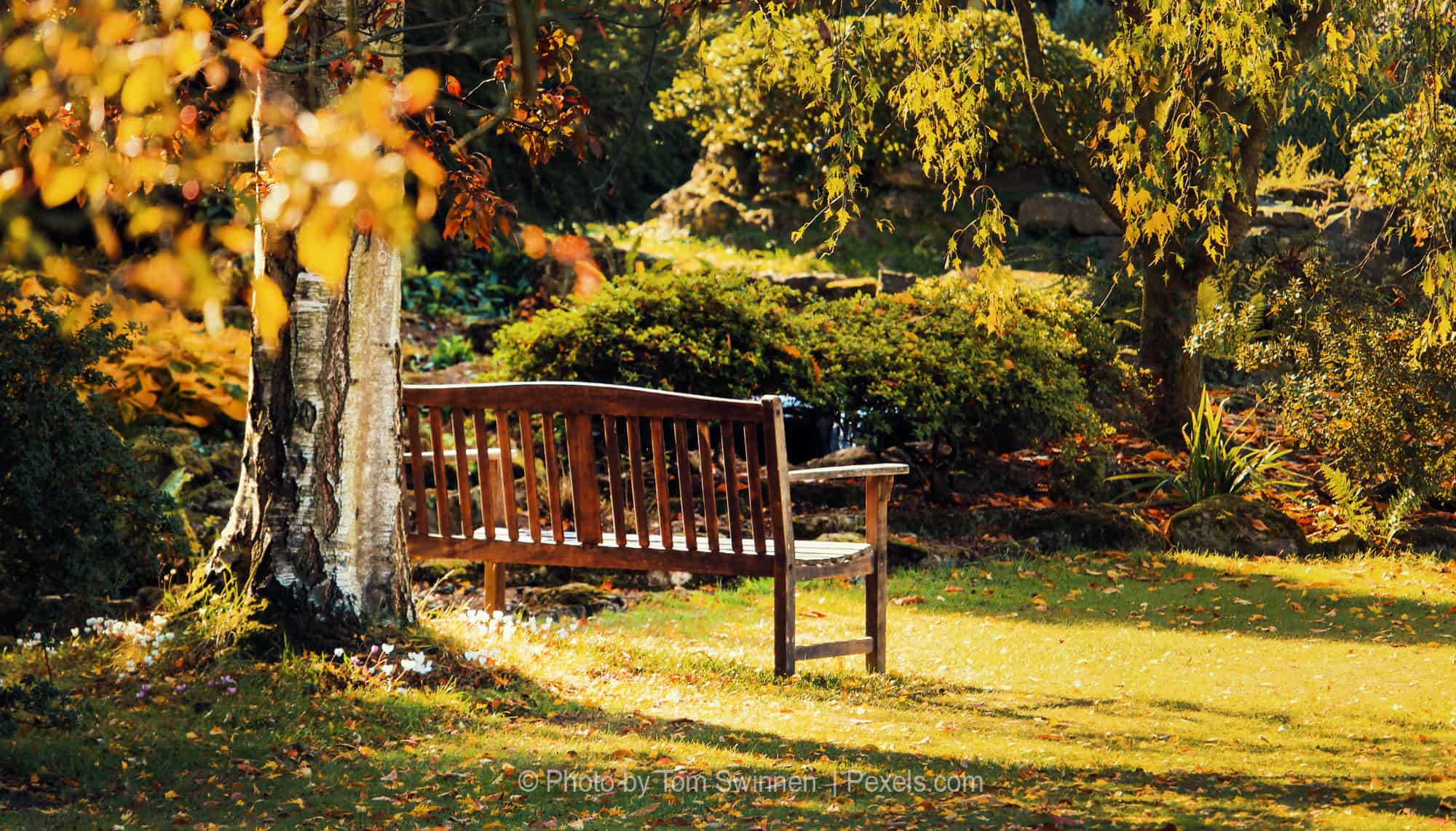
© Pexels.com
The Health Benefits of Gardening
As our gardens move towards winter we pause to realize what a gift gardening is to us all.
Subscribe to the Blog >By Kathy Wolfe, Skagit County WSU Extension Master Gardener
Most gardeners know from experience the benefits they feel from working in their gardens. These moments are what keep us going back season to season, year after year, whether it is the joy of nurturing our landscapes, the creativity of design, the bounty of our vegetable harvest, or the camaraderie of sharing a goal working with our children, family, or gardening friends.
As author Sue Stuart-Smith writes in The Well-Gardened Mind: The Restorative Power of Nature, “gardening is more accessible than other creative endeavors, such as painting and music, because you are halfway there before you start; the seed has all its potential within it – the gardener simply helps unlock it.”

Gardening increases social connections and increases the size of your support group. © Nancy Crowell Photography
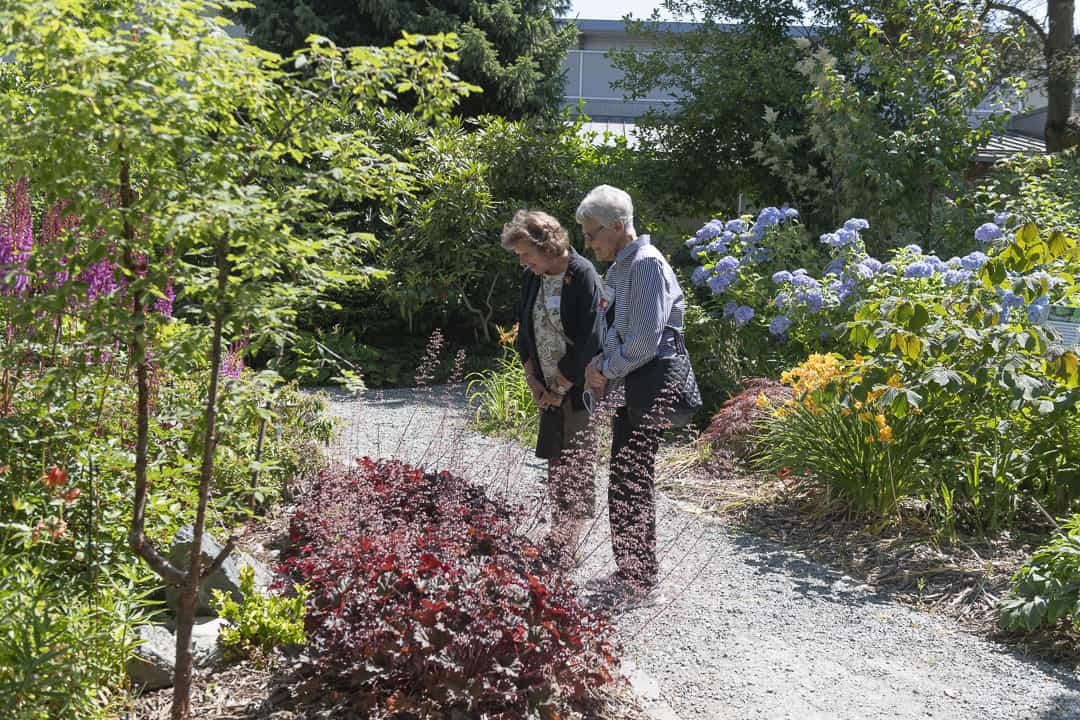
Gardening rewards us by igniting all of our senses. © Nancy Crowell Photography
Gardening rewards us by igniting our senses. The scents of flowers and herbs wafting through the air, the calls of birds and bees going about their daily business, the taste of the season’s first cherry tomato straight off the vine, the dazzling rainbow of colorful flowers, or the feel of earthiness in the soil, as we dig up the dirt. All contribute to our feeling of calm and connectiveness.
In addition to the intrinsic feelings gardeners share, scientific studies have found other benefits that can help improve physical and mental health. This has led to the forming of groups that work with physically and mentally disabled individuals using techniques practiced in gardening to improve their lives. Many undergoing physical rehabilitation have improved mobility of limbs and coordination. Those struggling with their abilities to focus, such as attention-deficit / hyperactivity disorder (ADHD) patients, can learn over time to concentrate on the task at hand. Studies have found people experiencing mood disorders or post-traumatic stress disorder (PTSD) can alter EEG recordings, and reduce stress, fear, anger, and sadness as well as blood pressure by working with plants.
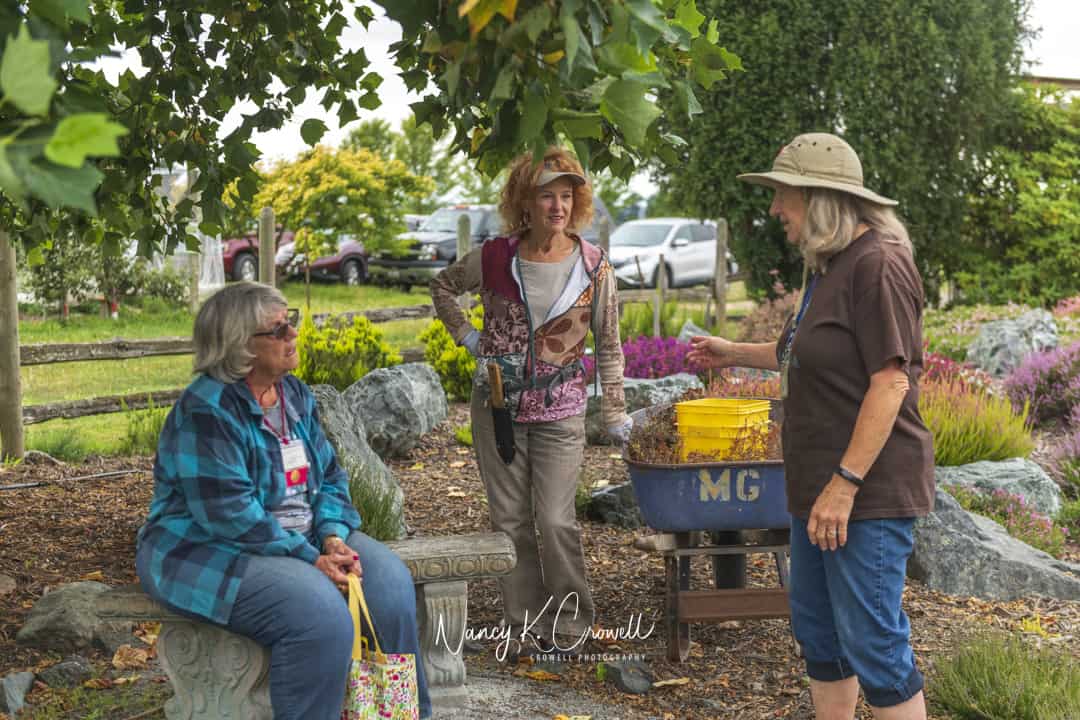
Gardening provides the camaraderie of sharing a goal working with our children, family, or gardening friends. © Nancy Crowell Photography
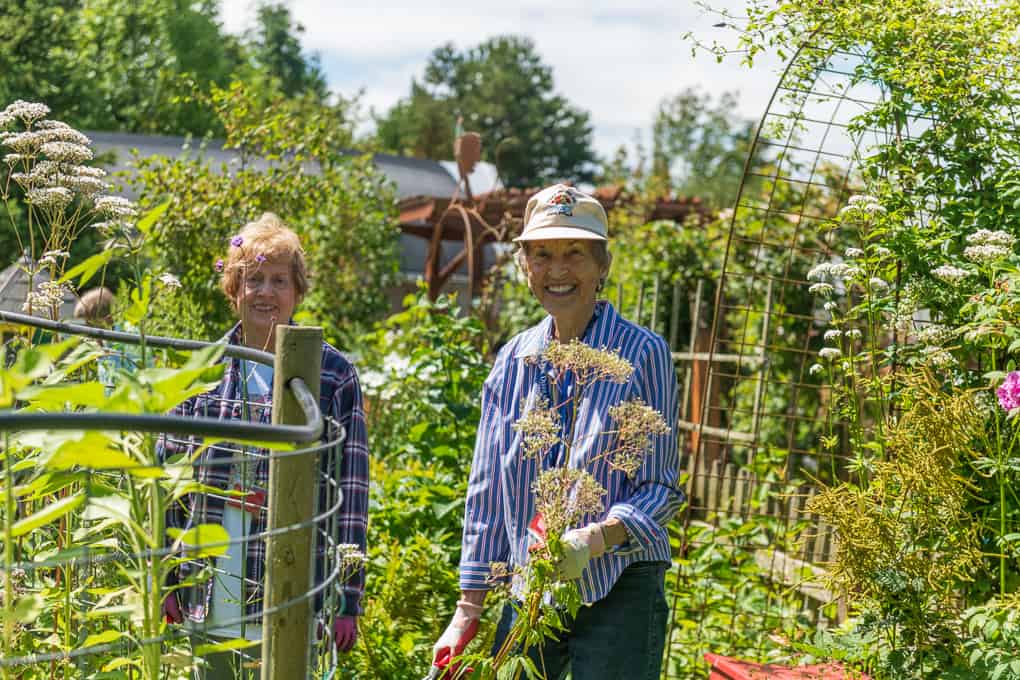
Gardeners know from experience the benefits they feel being in a gardens. These moments are what keep us going back season after season, sharing the joy of a nurtured landscape. © Nancy Crowell Photography
Let’s look at some of the findings of gardening’s benefits for all of us:
Improving mood – Focusing on immediate tasks and details can calm the mind away from negative thoughts and feelings, giving us a more peaceful and content frame of mind.
Self-esteem boost – Seeing plants grow and thrive under our guidance leads to feelings of accomplishment for our efforts.
Improvement in attention span – Paying full attention to a single activity can be difficult at times in this age of technological bombardment. Gardening helps us concentrate on what is right in front of us without getting distracted. This concentration can transfer to other situations over time. Studies show that outdoor activities are a benefit to everyone.
Provides exercise – Through digging, weeding, raking, and hauling, our bodies move several different muscle groups which help improve heart rate, muscle strength, immunity, and overall mental well-being. Reducing anxiety and depression can be a result.
Learning resilience – Not everything in the garden goes as planned. Learning from our mistakes and pushing forward to rectify problems or begin the project anew helps forge stronger resolve to get good results.
Encourages social bonds – Working at a community garden or in a group fosters teamwork and cooperation to achieve shared goals. By increasing social connections, you may increase the size of your support group and also help you identify as being a part of the general gardening community.
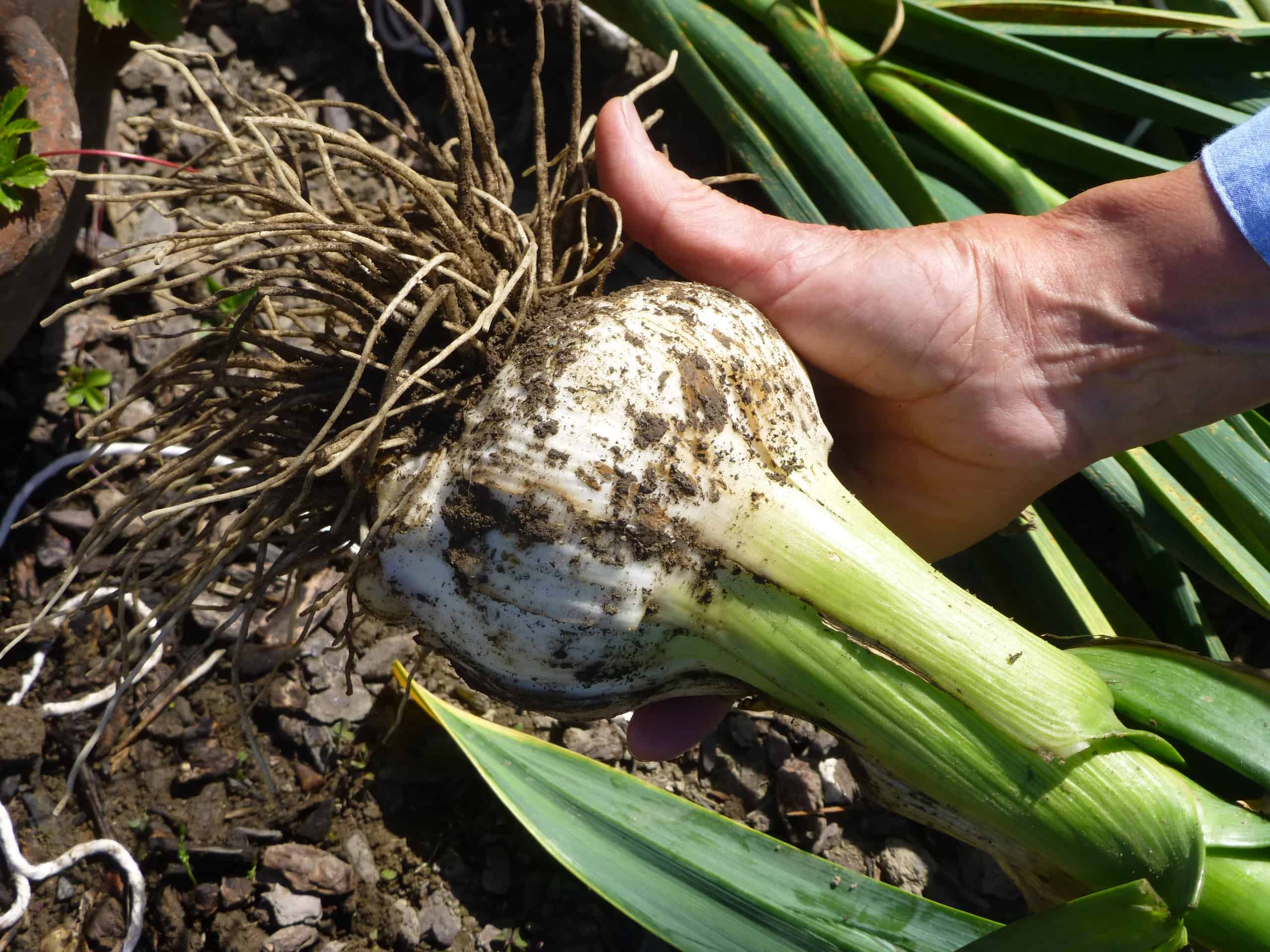
Nothing quite beats the satisfaction of harvesting vegetables grown in your own garden. © Ruth Sutton

Seeing plants grow and thrive under our guidance leads to feelings of accomplishment for our efforts. © Nancy Crowell Photography
Horticultural Therapy has been documented in ancient times and practiced in America since the 19th century when Dr. Benjamin Rush, who is recognized as the “Father of American Psychiatry,” first documented the positive effects that working in the garden had on mental illness patients. In the 1940s and 1950s gardening was used to help hospitalized war veterans transition from both mental and physical traumas experienced during their service.
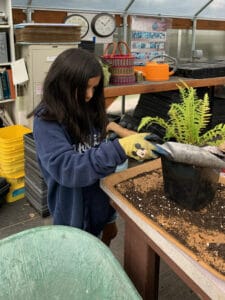
Master Gardener Laurie Johnson enjoys sharing gardening experiences with her grand-daughter Lillian, building bonds to last a lifetime. © Laurie Johnson
Gardens have been used in prisons and mental health facilities to help participants make connections through the soil as they witness the seeds they planted emerge and thrive through their efforts. Children’s gardens, particularly in deprived areas of large cities, can provide a needed calming environment and help
teach students where their food comes from. Studies have shown these gardens can be most beneficial to children who sometimes get lost in the regular classroom – those who are unmotivated, have special needs, or experience behavioral problems.
The American Horticultural Therapy Association offers accredited certificate coursework for becoming a professional in this field. Their criteria for being a horticultural therapist include having a minimum of a bachelor’s degree in horticultural therapy, or additional coursework in plant science, human science, and horticultural therapy. Members must complete a 480-hour internship in horticultural therapy and professionally register through their organization.
Even as our gardens slowly move into dormancy over the winter, we are still engaged with looking backward at the successes and challenges of the past year and at the same time are invigorated by planning changes, improvements, and additions we want to implement in the year ahead. What a multifaceted gift gardening is to us all!
REFERENCES:
Gillihan, S. 10 Mental Health Benefits of Gardening. Psychology Today [Internet] 2019 June 19. https://www.psychologytoday.com/us/blog/think-act-be/201906/10-mental-health-benefits-gardening
Davis, D. Hayes, J. What Are the Benefits of Mindfulness. Continuing Education (CE) Psychology [Internet], 2012 July/August Vol. 43, No. 7. https://www.apa.org/monitor/2012/07-08/ce-corner
WebMD Editorial Contributors. How Gardening Affects Mental Health. Web MD [Internet] 2021 Oct. 25. https://www.webmd.com/mental-health/how-gardening-affects-mental-health
Schattenberg, P. The Positive Effects of Gardening on Mental Health. Texas A&M AgriLife Communications [Internet] 2022 May 18. The Positive Effects Of Gardening On Mental Health – Texas A&M Today (tamu.edu)
Hall, C. Knuth, M. An Update of the Literature Supporting the Well-Being Benefits of Plants: A Review of the Emotional and Mental Health Benefits of Plants. Journal of Environmental Horticulture. Meridian Allen Press [Internet] 2019 37 (1): 30-38. https://meridian.allenpress.com/jeh/article/37/1/30/430948/An-Update-of-the-Literature-Supporting-the-Well
Horticultural Therapy. American Horticultural Therapy Association. [Internet]. https://www.ahta.org/horticultural-therapy
Stuart-Smith, S. The Well-Gardened Mind – The Restorative Power of Nature. Simon & Schuster 2020.

Author Kathy Wolfe
ABOUT THE AUTHOR:
Kathy Wolfe has been Skagit County WSU Extension Master Gardener since 2002. She is co-manager of the vegetable garden at the Discovery Garden on SR 536 west of Mount Vernon.
_________
Questions about home gardening or becoming a Master Gardener, may be directed to: Skagit County WSU Extension Office, 11768 Westar Lane, Suite A, Burlington, WA 98233; by phone: 360-428-4270; or via the website: https://extension.wsu.edu/skagit/mg/